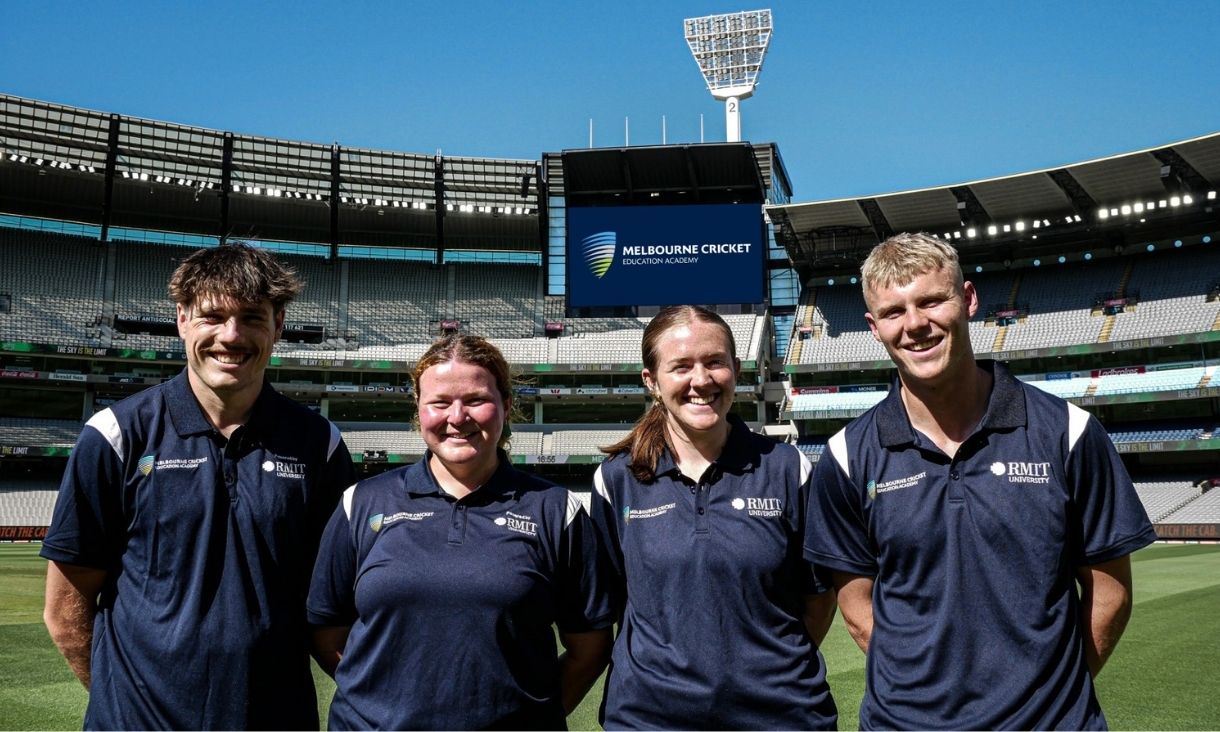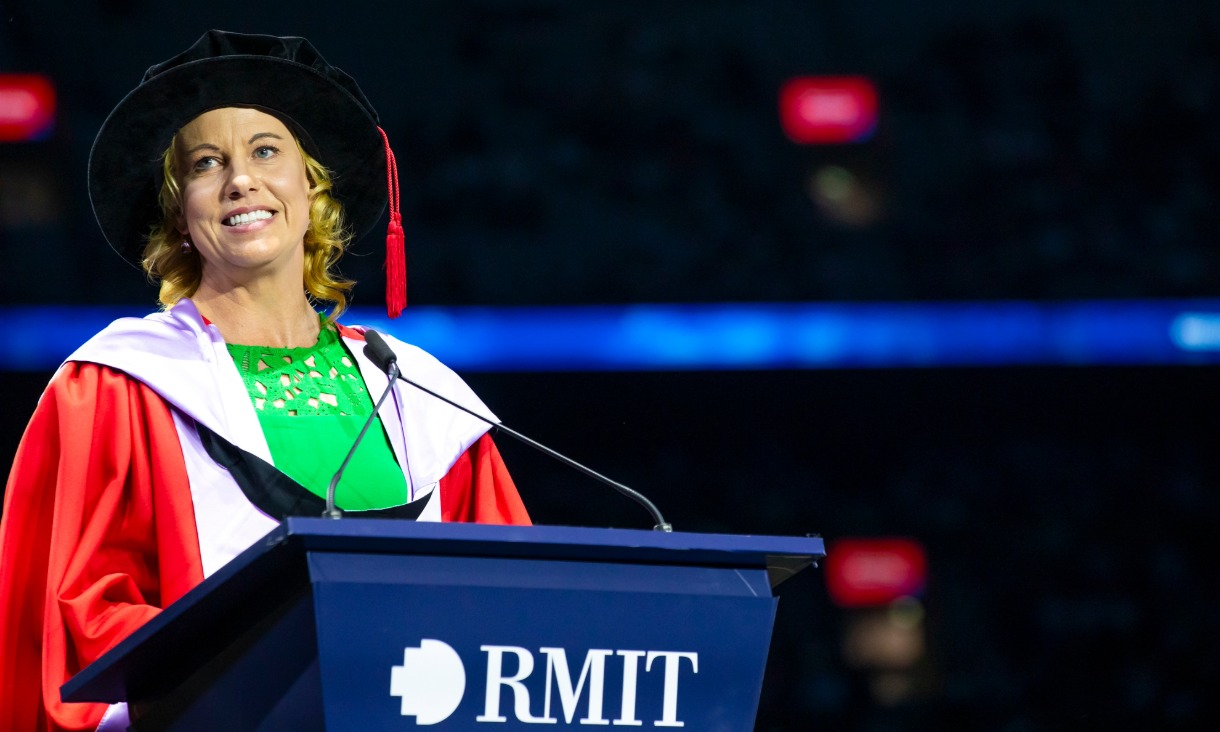RMIT extends partnership with Cricket Victoria to continue Melbourne Cricket Education Academy
RMIT University and Cricket Victoria have announced the extension of their partnership alongside the Melbourne Cricket Education Academy (MCEA), which will continue to provide students with an exclusive pathway that combines study with real-world experience.
RMIT becomes Midsumma Festival Major Partner
RMIT is proud to partner with Australia’s leading LGBTQIA+ arts and cultural festival as it marks 30 years of the Midsumma Pride March – one of many events celebrating pride and unity.
RMIT community comes together to celebrate the Class of 2025
With Sneaky Sound System setting the scene and honorary degrees awarded to two outstanding leaders from the art and business communities, the 2025 RMIT Melbourne Graduation Ceremony was full of highlights.
Louise Adams recognised with honorary doctorate at 2025 graduation
RMIT has awarded Louise Adams, Aurecon Chief Executive Officer, the Doctor of Business honoris causa, acknowledging her leadership in engineering, gender equality and Australia’s partnership with Vietnam.







